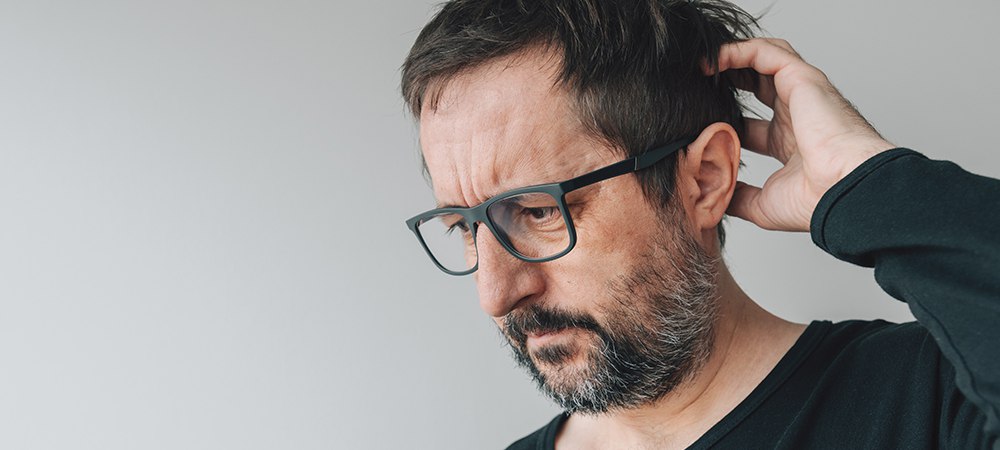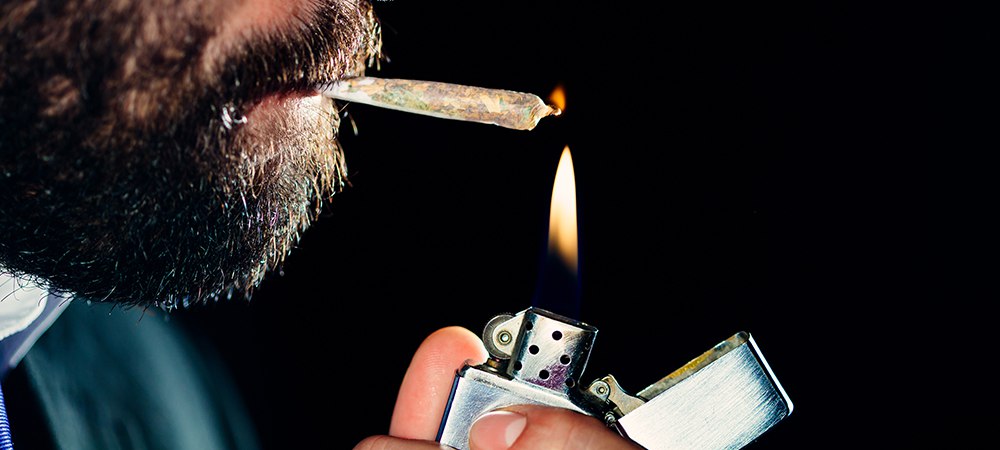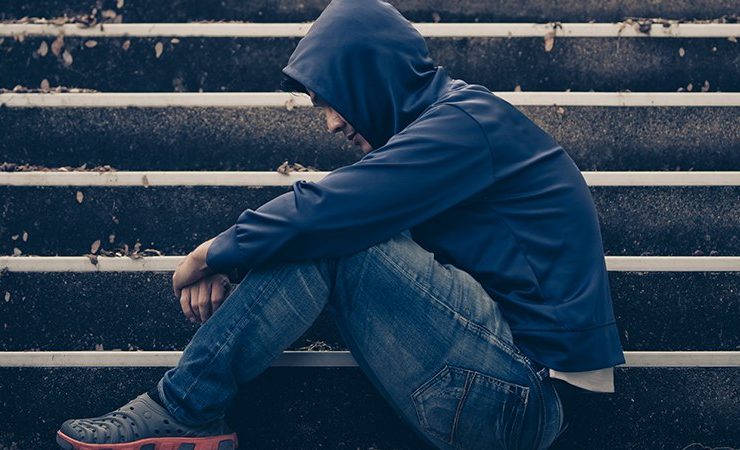Cannabis Use Signs and Symptoms
Back in 2019, the Canadian government legalized the use of marijuana for recreational purposes. And since then, anyone not under the age of 18 is free to take cannabis without legal repercussions. So smokers no longer need to hide or get their fix in secrecy; as far as the law is concerned, they’re free. But that doesn’t mean everyone is proud to admit they use cannabis.
Some, out of personal guilt or shame or whatever it is, may decide to hide it from you, particularly if they’re close to you. It may be out of fear you’re going to criticize them for indulging in a potentially dangerous pass time. Or they may not want to involve you with it.
Regardless, they’ll give off signs that’ll point out their use of cannabis. These signs may be pronounced or subtle.
But how do you tell if someone is using cannabis? There are numerous signs you can use to know someone has been taking cannabis. New signs show up every day, which is not surprising given how the percentage of cannabis users keeps rising. A report by Statistics Canada indicated that the rate of cannabis users increased by at least 6% in the last three years. The percentage initially stood at 14% in 2018 and has since grown to 20% in 2020.
That said, what are the common signs of cannabis use?
Signs Indicating the Use of Cannabis
Like we said earlier, there are different ways to tell someone has been taking cannabis. It’s easier to spot many of these signs in teenagers; adults users are usually better at managing themselves. But, on the other hand, teenagers are prone to exhibit a variety of behavioural patterns that gives them away.
That said, we can categorize the signs of cannabis use into four main groups. Each group then has its sub-signs or, let’s say, more specific symptoms, which we’ll explain in detail below.
Physical Signs of Cannabis Use
The first and most noticeable category of cannabis use symptoms includes the physical signs. These signs give away a marijuana user at a single glance. How? They generally involve changes in the physiology and physical state of the individual. Examples of these physical signs include;
Bloodshot Eyes
We all know the familiar red, glassy-eyed stare of someone high on marijuana. One of the tell-tale signs of cannabis use is the redness of the sclera (the whitish part of the eyes). The popular opinion indicates that the redness results from the irritation of the eyes by the smoke. However, that’s not entirely true.
One of the primary compounds in cannabis is Tetrahydrocannabinol (THC). The THC is responsible for most of the undesirable effects you may feel when you take weed. The THC and some other cannabinoids bind with cannabinoid receptors in your body when you smoke. After binding with the receptors, they then induce dilation and widening of the blood vessels.
When the vessels widen, it increases blood flow to specific body areas, including the eyes. Thus the increased blood flow to the eyes is responsible for the redness. That said, if you notice a sudden unexplainable redness of the eyes in a person, there’s a possibility the individual has been smoking up.
Increased Appetite
A well-documented side-effect/sign of cannabis use is increased hunger. This sign is so popular; people started calling it “the munchies.” The interesting thing about the munchies is it doesn’t matter the amount of cannabis you consume. You can ingest a large chunk of weed brownie and still get the munchies.
According to research, “the munchies” is more of a neurological side-effect than your stomach demanding food. The study suggested that cannabis users experience increased appetite because the substance increases the ability of their taste buds. Thus, when you use cannabis, it heightens your sense of smell and taste, so you’re able to smell and taste food more intensely.
Scientists believe the increased sense of taste and smell is responsible for the increased appetite. That said, if your friend suddenly starts eating more than usual, it’s indicating a possibility that they had cannabis recently.
Impaired Coordination
Another sign you may notice from someone who uses cannabis is an impairment in cognitive functions. The THC messes with the normal functioning of the cerebellum, thus affecting the user’s balance and coordination. It also interferes with the basal ganglia, which controls movement. That’s why some users experience difficulty walking properly after using cannabis.
Not only that, marijuana can affect the user’s perception of time, space and speed. Thus it may cause you to perceive time to be slower than usual. You may also perceive objects to be farther or closer than they are. So, when you notice an individual lacking proper coordination in their speech pattern or movement, they may be under the influence of weed.
Dizziness

Not only the brain, cannabinoids can also affect the central nervous system. This occurrence explains the pain-numbing effect and also how cannabis causes drowsiness. While dizziness may result from a host of different causes, you can always consider cannabis to be one of them. When an individual seems to be perfectly healthy and strong but complains of unexplainable dizziness, it might result from consuming cannabis.
Drastic Change in Weight
Another noticeable sign of cannabis use is a drastic weight change. Depending on the individual, this may be an excessive gain or loss in weight. Weight gain resulting from cannabis may be due to extreme eating after cannabis use. On the other hand, the weight loss may be due to complications arising from the use of the substance.
However, It’ll be preposterous to assume that a drastic weight change is a result of cannabis. The extreme weight change may result from other factors too. Nonetheless, whenever you notice such occurrences, don’t rule out cannabis use as one of the causes.
Related Article: Is Drug Rehab Safe During the COVID-19 Outbreak?
Behavioural Signs of Cannabis Use
Individuals who use cannabis also exhibit some behavioural changes induced by the substance. Generally, behavioural changes don’t happen suddenly; the changes follow a gradual process. But, you may not notice them early on until they become very apparent and difficult to control. The common behavioural changes associated with cannabis use include;
Reduced physical Activities and Lethargy
One of the common side-effects of marijuana is it’ll mellow you out. I.e. it’ll cause you to become unnaturally calm and relaxed. This situation sometimes progresses to drowsiness and sleep. While in this state, you’ll find it very difficult to participate in any activities. The marijuana relaxes your muscles and causes you to feel very comfortable in your present condition.
WIth your muscles and your nervous system in a relaxed state, lethargy sets in quickly. It’ll take much effort to muster the motivation to get up and do what you need to do in such a relaxed state. Cannabis pretty much saps away the power, motivation, or drive you need to participate in physical activities.
The only other thing that may motivate you in such a state will be primal instincts such as sex drive and the urge to take more cannabis. While these points may not describe you, do they sound like the recent behavioural traits of someone you know? General lethargy and lack of interest in otherwise enjoyable activities are some of the signs of cannabis use.
Withdrawal from Family and Friends
The continuous lethargy and lack of energy caused by cannabis ultimately become a recurring habit for the user. As a result, the person begins to prefer spending time alone, free from external interference. Aside from the lethargy, being alone also allows them to smoke up without restrictions or anyone to stop them.
Also, a user withdraws themselves from their friends and family to keep their cannabis use a secret. Secrecy is popular among teenagers whose parents and close friends don’t know about their new habits. Then again, the cannabis user may suddenly begin to find the company of their non-smoker friends uninteresting. This change in perception may cause them to distance themselves from their close ones.
Alternatively, a relatively quiet and reserved individual may suddenly become boisterous and outgoing. They suddenly lose all their reservations and start exhibiting mysterious confidence. Such a behavioural change can also result from cannabis consumption. It’s widespread knowledge that people use marijuana to forget their fears and worries, and that may be the case here.
Poor Hygiene
With continuous use, a cannabis user may start reflecting the visage of a junkie. They begin to pay less attention to their appearance and will not want anyone disturbing them. As a result, they stay indoors all day, eat unhealthy food, and go days without bathing or cleaning their space.
They may also begin to exhibit signs of depression, loneliness and regret. At this point, they may require external help for recovery. Most users who exhibit this behaviour are already addicts at this point, and they need professional cannabis addiction treatment to get clean.
Emotional Signs of Cannabis Use
We already talked about some of the effects cannabis can have on your brain and how they reflect in your physical activities. But, besides lethargy, drowsiness, tiredness and all of that, cannabis can also influence your mental and emotional state. Let’s look at how that happens below.
Memory Lapse

However, this inability to remember events is often not permanent. So, with time you’ll be able to recall what you needed to remember. Therefore, if you notice a sudden recurring case of memory lapse, especially in a teenager, it’s a sign they may be smoking cannabis or indulging in other drugs.
Nervousness and Paranoia
Unprovoked nervousness and paranoia may also occur as a result of cannabis use. A lot of cannabis users often seem to be on edge and get upset quickly. An individual may suddenly become shifty and may vex at the slightest provocation. Again, it’s a result of the effect of cannabis on the individual’s brain.
Cannabis use may also trigger hallucinations which cause you to see things that are not there. Such hallucinations may affect your perception negatively. Thus you may begin having negative thoughts about people around you. When you find yourself imagining bad things about people, cannabis may be taking its toll on your mind.
Other Signs of Cannabis Use
There are many other ways to tell if a person is using cannabis. For example, you want to pay attention to the environment and the space of your loved one. Look out for paraphernalia in their living spaces; you want to watch for items such as:
- Rolling papers,
- Bongs,
- Lighters and matches
- Pipes
- Vape pens
- The trademark skunk-like smell of marijuana
Related Article: 10 Tips to Get Rid of Marijuana Addiction
Final Thoughts
The points mentioned are apparent signs of cannabis use. However, don’t be too forward in challenging or chastising your loved one for marijuana use. They may be well within their rights to use it. You want to approach them with tact and talk to them about it. Don’t be rash, but ensure you’re clear in letting them know how you feel about them taking cannabis.
If you notice your loved one has a cannabis addiction, don’t panic, they can recover with professional help. Here at Inspire Change Wellness Centre, we provide professional support for cannabis addicts. We’ll be ready to help you or your loved ones overcome their unhealthy addictions.


